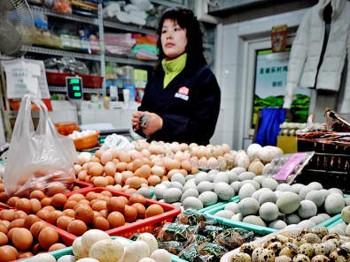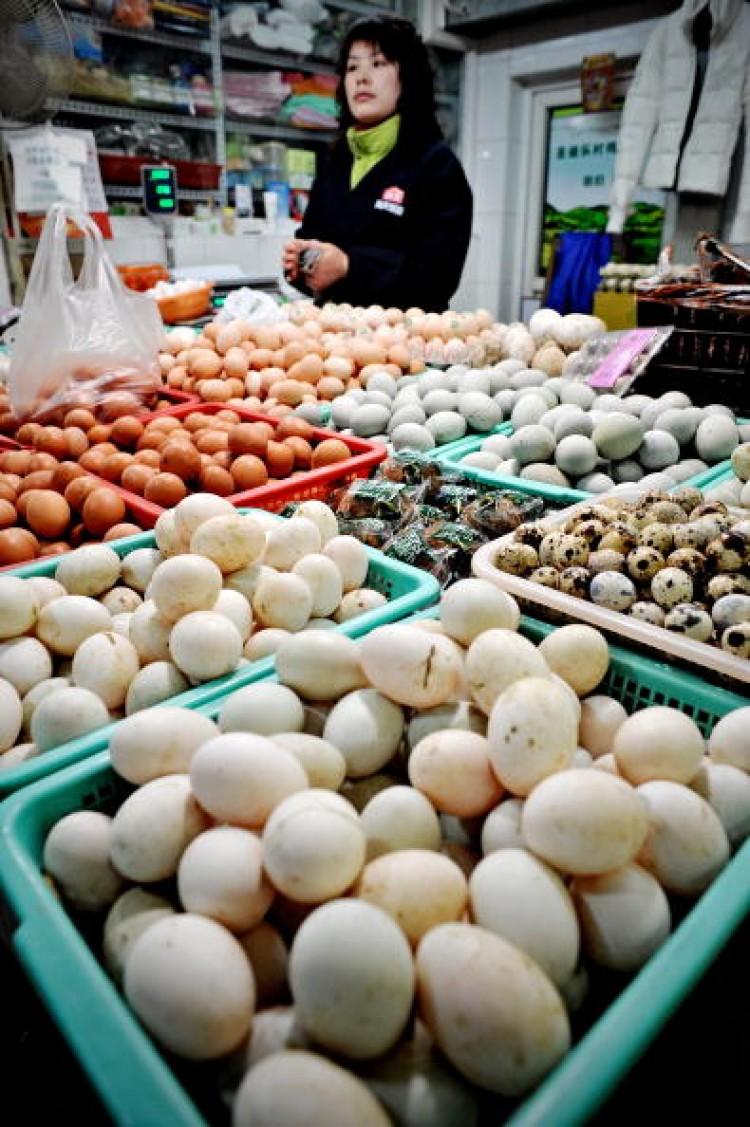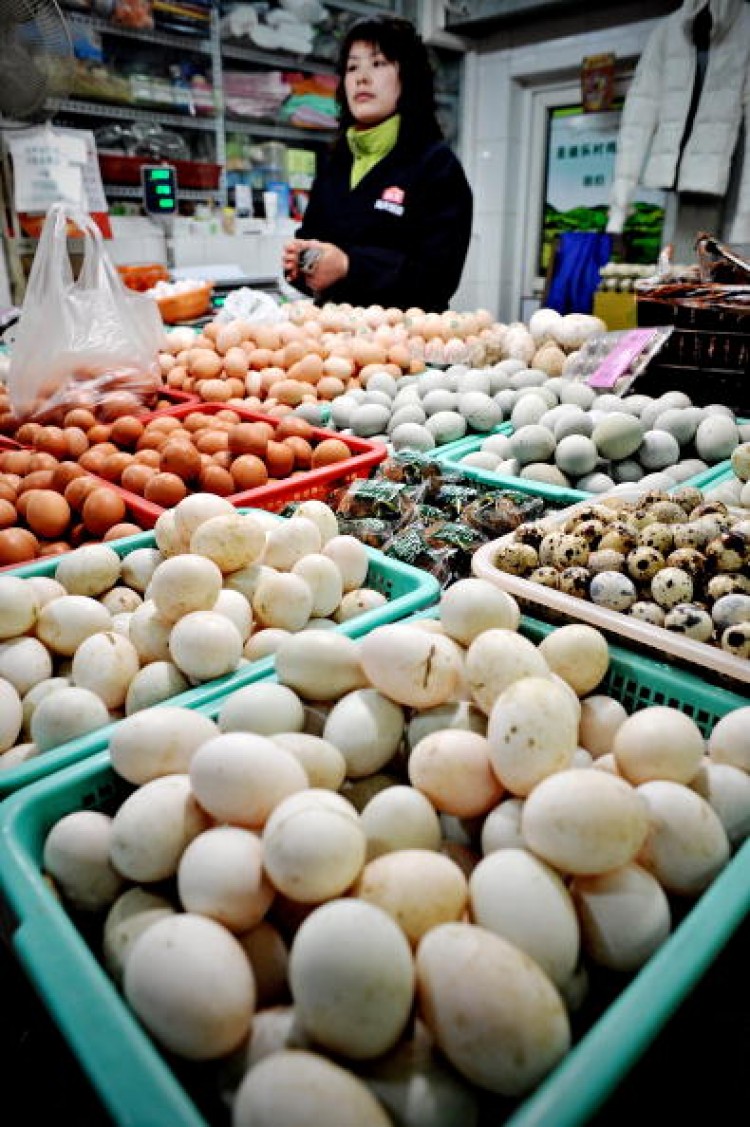A ‘Fifty Fen’ Egg Causes Stir in China
Chinese Premier Wen Jiabao’s visit to a university in Beijing on Oct. 1 has been widely discussed because of the remarkably inexpensive breakfast eaten by one student—and the subsequent ridicule the incident received.

A vendor selling eggs waits for customers at a wet market in Shanghai on March 9, 2010. Philippe Lopez/AFP/Getty Images
|Updated:





